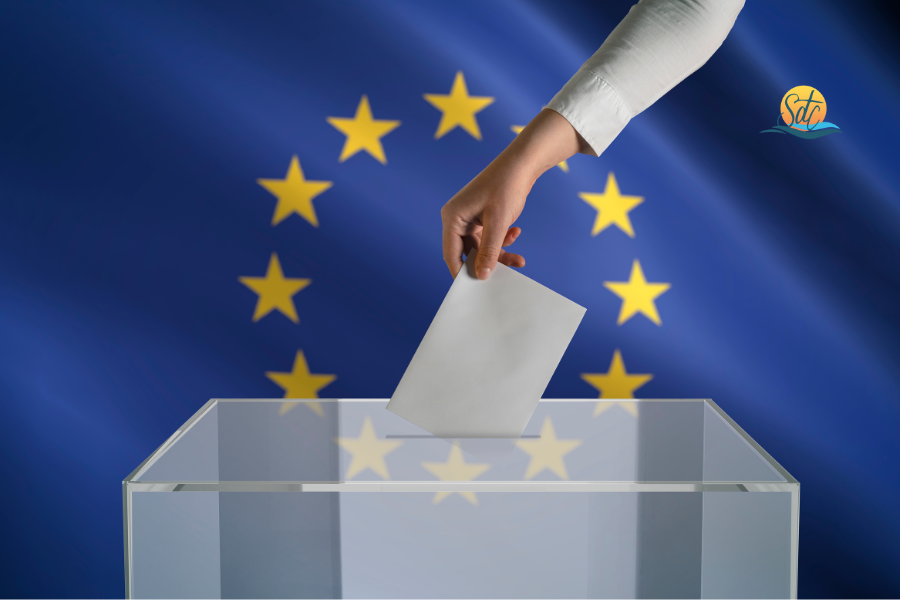The core pro-European parties gained a majority, despite the fact that voters shifted towards Eurosceptic positions. Although the pro-European majority is now narrower, its constituent parties must continue to work together to tackle the challenges that the European Union will be called upon to face during its upcoming tenth term.

We take up here an in-depth analysis by Father Giuseppe Riggio, the Jesuit director of the magazine Aggiornamenti Sociali, a monthly publication offering criteria and tools to tackle the most debated issues today and to participate consciously in social life.
“At the beginning of the 2000s long-awaited goals were achieved (the adoption of the euro and enlargement to the countries of Central and Eastern Europe) and important setbacks were recorded (the negative conclusion of the process to adopt a European Constitution). After these events, the Union entered a de facto standstill in terms of both institutional arrangements and political viability. Today, the majority of political forces agree on the urgency of change for the EU, but in what direction?
After Brexit, the prospects of an exit from the EU are no longer evoked by Eurosceptic parties and sovereignist forces, which now claim they want ‘less Europe’, i.e. they want to focus on the internal market and drop other areas of joint action. The dream of achieving a European federation is always present as an ideal horizon, but its realisation is a long way off. Another alternative is to maintain the status quo, given the opposition to a revision of the Treaties, allowing those states that wish to do so to realise forms of enhanced cooperation (the so-called multi-speed Europe).
A soul for the European project
In his speech on 3 July 2019, at the time of his inauguration as President of the European Parliament, David Sassoli emphatically stated that ‘We are not an accident of History, but the children and grandchildren of those who managed to find the antidote to the nationalist degeneration that has poisoned our history’. The antidote he refers to is the process that led to the birth of the first European institution, the European Coal and Steel Community, founded on ‘de facto solidarity’ between European countries, so that ‘any war between France and Germany would become not only unthinkable, but materially impossible’, as Robert Schuman declared in his famous speech on 9 May 1950.
It was a convinced choice, a courageous break with established political logic, which did not envisage solidarity between the winners and losers of a war. We recall those events because we are convinced that the prophetic force of that innovation in the way of conceiving politics has not been exhausted. Even in the epochal changes recalled and the challenges posed to the EU, there are winners and losers: Member States that benefit more at the expense of others; social groups within a country that are hit harder than others.
If we look at the history of the European journey, the decisions taken have not always been based on solidarity. This is the case with migration: for years policies have been enacted to hinder the entry of migrants into ‘Fortress Europe’, but the fact that we continue to talk about the migration crisis and emergencies exposes their ineffectiveness and inadequacy. Quite different have been the achievements when solidarity has been the guiding criterion, as in the case of pandemic management. Although there are some shadows, the importance of the transition from the initial uncoordinated action, when European states acted as free-riders in competition with one another, to the choice of European coordination, with a priority focus on protecting the most fragile citizens, must be recognised. No less revolutionary was the launch of NextGenerationUE, which broke the taboo of common indebtedness to support economies tried by the consequences of the pandemic and of which Italy is one of the main beneficiaries, in spite of propaganda that portrays a Europe hostile to our country.
Even today, solidarity between states and between peoples is a possible way forward. It is the irreplaceable reference to give a soul to a project like the European one, which ‘cannot and must not remain an economic and technical enterprise’ (Schuman R.). It is the force that resists a culture based on individualism, which leads people to focus on their own needs and to erect walls. It is the change of perspective that helps overcome the fears and mistrusts that hold us back. This is why we are voting in the next European elections: to ensure that solidarity between peoples with a view to peace and human development is still the driving force behind the European dream, to ensure that in the next European Parliament there are political forces and elected representatives who recognise themselves in this vision of society”.
Father Giuseppe RIGGIO, SJ, Aggiornamenti Sociali, June-July 2024






